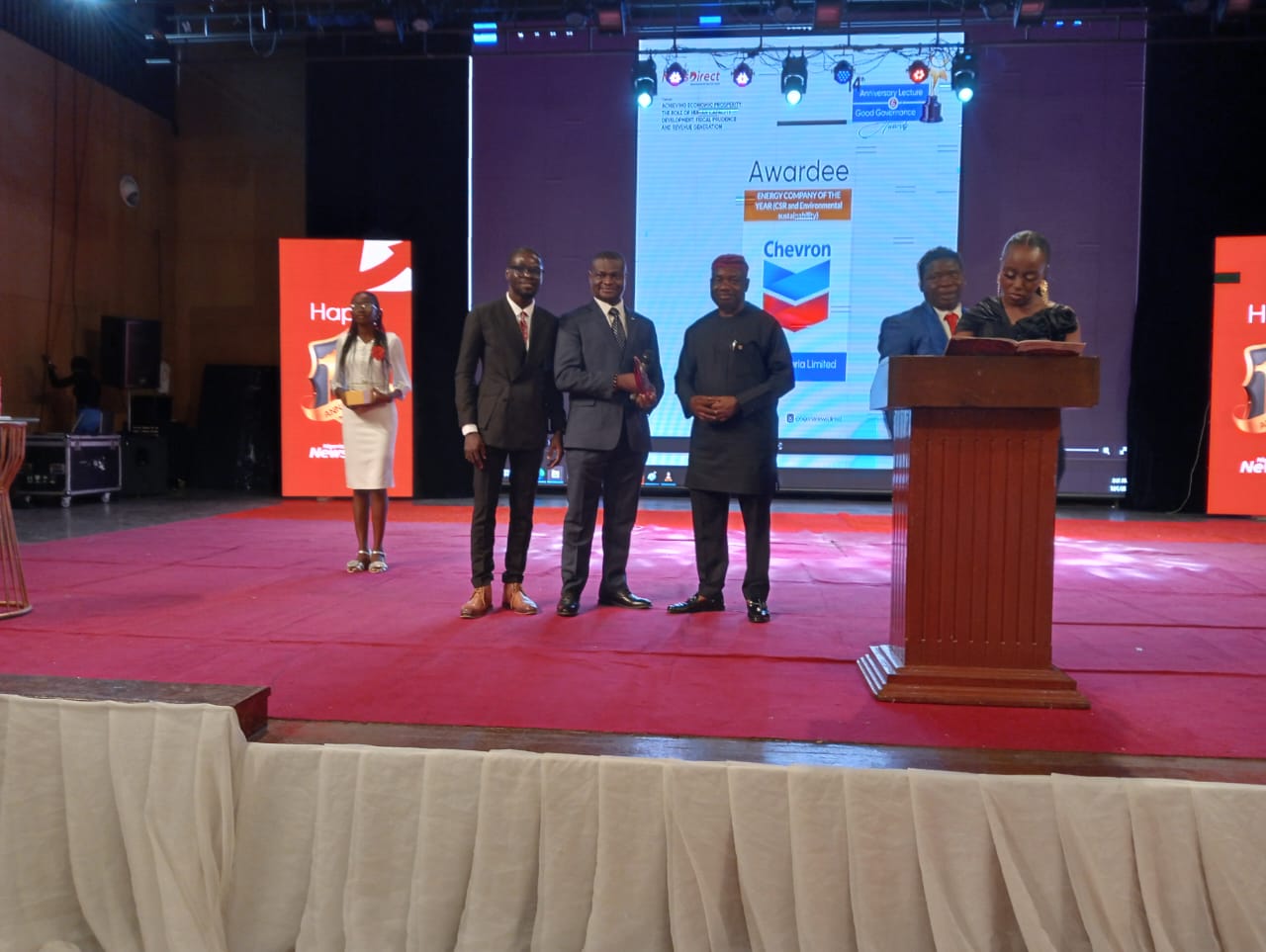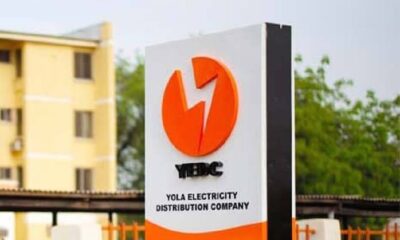Energy
Ministry Of Power Allocates N2bn To Meter Band A Customers
In a significant move towards enhancing electricity distribution, the Ministry of Power has earmarked N2 billion for the metering of unmetered Band A customers.
Minister of Power, Adebayo Adelabu, made this announcement during the prestigious Business Day Energy Conference in Lagos on Friday.
Band A customers, characterized by receiving a minimum of 20-hour power supply and paying N206 per kilowatt-hour after subsidy removal, stand to benefit from this allocation.
Adelabu further disclosed that discussions with Alhaji Garba Sanusi, Chairman of the Nigerian Electricity Regulatory Commission (NERC), solidified plans to utilize the fund to procure meters for Band A customers, addressing issues of underestimated billing.
He said “Before I left the office yesterday, the chairman of NERC was in my office, Alhaji Garba Sanusi, and we have agreed that we have an accrued N20 billion for metering.
“And I said let’s release the N20 billion for the DisCos to procure meters for the unmetered Band A customers. Before the end of September, that is going to happen.”
Adelabu announced plans to supply 3.5 million meters by year-end to bolster revenue for the cash-strapped power sector.
He mentioned that most of the meters would be sourced from international vendors, with a smaller quantity expected from local manufacturers due to limited capacity.
Adelabu stated, “This year, we’ll procure two million meters, along with 1.5 million meters supported by the World Bank, totaling 3.5 million meters installed by year-end.”
Additionally, he confirmed that competitive bidding for the first batch of 1.5 million meters has concluded, with delivery anticipated within months.
According to a report by the NERC, Nigeria has approximately seven million unmetered customers.
In response to the depreciation of the naira against the dollar, the NERC deregulated meter prices, causing a significant increase in costs.
Presently, a single-phase meter is priced at over N100,000, varying by vendor.
Energy
Dangote Partnership: MRS Urges Nigerians To Insist On N935/Litre Petrol Price Nationwide

MRS Oil Nigeria Plc, a prominent player in the Nigerian downstream oil industry, has implemented a new petrol price of N935 per litre across all its retail service stations nationwide.
The company has also called on Nigerians to monitor and report any outlets that fail to adhere to the new price structure.
Biztellers reports that this is consequent upon an announcement by the President of Dangote Industries Limited, Aliko Dangote, that the Dangote Petroleum Refinery has partnered with MRS Oil and Gas to offer petrol at N935 per litre at retail outlets, following a reduction in the ex-depot price from N970 to N899.50 per litre.
ALSO READ: Dangote Slashes PMS Price To N899.50k
It was gathered that MRS Oil Nigeria Plc has instructed all its outlets to implement the new price immediately, setting up a digital platform and monitoring team to ensure full compliance.
In a statement on Monday night, the company declared, “Petrol is now being sold at N935 at MRS Filling Stations nationwide. If you find any station not following this price, please report it. Call 08009447853 or email: NG-FMKPMGWHISTLEBLOWING@NG.KPMG.COM”
Emphasising the eco-friendly nature of its products, MRS Oil added, “We call on all petrol station owners to join MRS Oil Nigeria Plc in improving the supply chain of our beloved country, ensuring product quality and availability in every corner of Nigeria for the benefit of all Nigerians.”
In Lagos, commuters were seen queuing at MRS filling stations to purchase petrol, with many expressing their gratitude to the Dangote Petroleum Refinery and MRS Oil and Gas, urging other marketers to support the indigenous refinery rather than import off-spec products into the country.
A commuter at the MRS station at Alapere on the Lagos Ibadan Express way, Ibukun Phillips, could not hide her joy as her husband filled up their car.
“I am very happy today. This is a victory for Nigeria,” she said. “The price reduction is the best gift of the season. But beyond just the reduction, we are buying standard, eco-friendly petrol at a lower rate. My husband and I have decided we will only be using MRS from now on because we are confident in the quality of the product and supporting the economy.”
A commercial bus driver, Adio Ajibade described the price reduction as a great relief, especially during the festive season.
“The reduction is a great relief. It will reduce transportation costs and benefit Nigerians. God will continue to bless Alhaji Aliko Dangote,” he said.
A public affairs analyst and university lecturer, Dr. Tunde Akanni, said the collaboration between Dangote Petroleum Refinery and MRS Oil represents a significant step towards improving the affordability, quality, and sustainability of petroleum products in Nigeria.
According to Dr. Akanni, “this move will not only help ease the financial burden on Nigerians but also promote a more environmentally conscious approach to fuel consumption, benefitting both the economy and public health in the long term.”
Energy
FDI: Shell To Invest Billions Of Dollars On Nigeria’s Bonga North Oil Field

As a direct implication of the Federal Government’s Foreign Direct Investment drive, the Royal Dutch Shell has completed the final investment decision on the deep offshore Bonga North project in Nigeria.
Biztellers reports that the Bonga North will be a subsea tie-back to the Shell-operated Bonga Floating Production Storage and Offloading (FPSO) facility which Shell operates with a 55% interest.
Shell’s Integrated Gas and Upstream Director, Zoë Yujnovich, said, “This is another significant investment, which will help us to maintain stable liquids production from our advantaged Upstream portfolio”.
ALSO READ: OGUNCCIMA Commends Dangote Refinery’s Impact
It was gathered that the Bonga North project involves drilling, completing, and starting up 16 wells (8 production and 8 water injection wells), modifications to the existing Bonga Main FPSO and the installation of new subsea hardware tied back to the FPSO.
The company is optimistic that the project will sustain oil and gas production at the Bonga facility.
The Bonga North currently has an estimated recoverable resource volume of more than 300 million barrels of oil equivalent (boe) and will reach a peak production of 110,000 barrels of oil a day, with first oil anticipated by the end of the decade.
In addition, the Bonga North will help ensure Shell’s leading Integrated Gas and Upstream business continues to drive cash generation into the next decade.
Energy
Chevron Nigeria Bags ‘Energy Company Of The Year For Environmental Sustainability And CSR

Chevron Nigeria Limited (CNL), has received an award as “Energy company of the year (2024)” for its Environmental Sustainability and Corporate Responsibility accomplishments.
The award presented by the Nigerian News Direct newspaper, on Friday December 6, 2024, and was received by Manager Communications, Chevron Nigeria and Mid-Africa Business Unit, Victor Anyaegbudike, at a colourful event at the Grand Ballroom of the Oriental Hotel, Lagos.
ALSO READ: Stakeholders Hail NCDMB As Local Content Level Hits 56%
The organizers of the award noted that Chevron has implemented the “Protecting People and the Environment” policy, which aims at preventing injuries, illnesses, and environmental incidents. They also referenced that the company has achieved 97% gas flaring reduction in its operations in Nigeria, while implementing waste management and environmental conservation programs.
According to the media organization, Chevron Nigeria has also invested millions of dollars in community development programs, supporting education, health and economic development initiatives that have benefited thousands of people, while ensuring diversity, inclusion, and employee engagement in its business operations.
Receiving the award from the Lagos State Commissioner for Information and Strategy, Gbenga Omotosho, Anyaegbudike thanked the organizers for the honour, and reiterated Chevron’s commitment to continue to develop, affordable, reliable and ever-cleaner energy that enables human progress around the world.

















